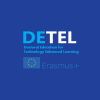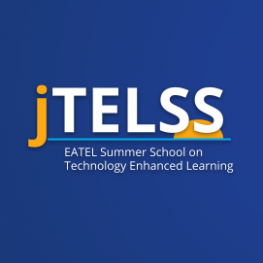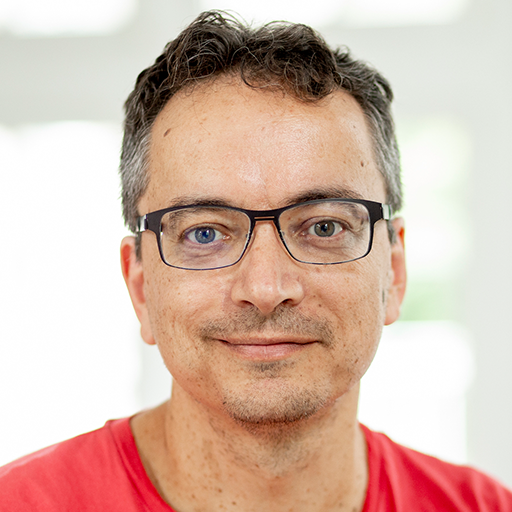Speakers
Roland Klemke
Open University of The Netherlands, The Netherlands / TH Köln, GermanyMikhail Fominykh
Norwegian University of Science and Technology, NorwayLorena Sousa
University of Aveiro, PortugalCorrie Urlings
Open University of the NetherlandsStart
24/05/2022 - 17:30
End
24/05/2022 - 19:00
Shape your future – Renewing doctoral education in TEL
Tuesday 24/05 17:30-19:00h
Outdoor Area B
This session is organized by the DETEL Erasmus+ project. 
DETEL is a strategic partnership among nine European universities and EATEL to reflect their expertise in doctoral education into a new study program in TEL, extended with rich and professionally produced OERs.
Abstract
TEL as an interdisciplinary field has many different approaches to doctoral education, depending on the country/university/faculty of the candidate and many other factors. In an attempt to harmonise and innovate doctoral education in TEL, the Erasmus+ project DE-TEL set out to define a new programme for doctoral education on European level.
In this workshop, we want to inform you about the state of the work in the DE-TEL project and want to involve you into further shaping the programme.
Needs Analysis
Digitisation of education in all of its forms is one of the key trends in educational research. Digitisation requires pedagogical expertise on using and technological expertise in designing technologies for learning, and strategic expertise in policy making and change management. However, stakeholders currently lack combined knowledge from all three perspectives, on how to strategically drive and operationally implement digitalisation of learning and training, envision innovative technologies for learning, and rigorous methods to create evidence for the effectiveness and efficiency of technologies as part of socio-technical interventions.
TEL is the research field that covers digitalisation in education. However, it benefits and suffers from its multidisciplinarity at the same time: while the multidisciplinarity broadens the view on TEL to the relevant perspectives, approaches to doctoral education in TEL differ significantly across institutions.
The goal of the DE-TEL project is to bring doctoral education in TEL to a new level with high-quality resources and a new internationally designed program to better support curricular integration and avoid fragmentation of the digitisation agenda in Europe.
The JTEL summer school brings together PhD candidates and researchers in the field from various backgrounds and is thus an ideal place to spread knowledge on the DE-TEL approach as well as to elicit feedback and input from candidates.
Learning Objectives
- Participants get to know the DE-TEL project and its objectives.
- Participants learn about the current status in doctoral education in TEL across Europe
- Participants learn about planned activities and learning offers according to the renewed programme for doctoral education in TEL
- Participants can actively contribute to the programme for doctoral education in TEL
Pre-activities
None.
Session Description
The session is organised in three main phases
-
- Introduction presentation and overview (20 min): gives an overview over the status and aims of the DE-TEL project, presents the collected results and plans so far. Introduces the group task to the participants.
- Group phase (45 min)
(10 mins in groups of 3-4) In this timeframe participants get a change to discuss what has been presented. To what do you think are the key strengths of the DE-TEL research presented? What are the key areas for development of the DE-TEL research presented?
(15 mins individual) do an individual SWOT analysis of your own situation as a PhD candidate or supervisor.
-
-
- Strengths: what is the strength of your PhD/supervision in TEL doctoral education? in other words: what do you excel at in this area?
- Weaknesses: what is the weakness of your PhD/supervision in TEL doctoral education? in other words: what holds you back from performing at the optimum level in TEL doctoral education?
- Opportunities: what are some favorable external factors about TEL doctoral education that influence you in your position?
- Threats: what are some external factors about TEL doctoral education that can cause harm to you in your position?
-
(20 mins in groups of 3-4) discuss your own findings in small groups of 3-4 people. Based on your findings, construct a joint list of:
-
-
- Compliments: Inspired by the strengths and opportunities, list things that are already going great in TEL doctoral education.
- Challenges and recommendations: Inspired by the weaknesses and threats, list things that are (potential) problems and challenges in TEL doctoral education. If possible, devise a recommendation on how to solve the listed challenges.
- Prediction: based on all you have discussed so far, where do you see the field moving in the future?
- Result presentation and discussion (25 min)
-
Each group presents the constructed list of compliments, challenges and recommendations, and prediction. General discussion ensues.
Post-activities
Session organisers collect the input developed by the groups and include this into the programme design for the DE-TEL project. Participants can (if interested): get invited for a further in-depth interview on selected aspects of doctoral education in their own field of expertise get notified on the release of the DE-TEL final programme




